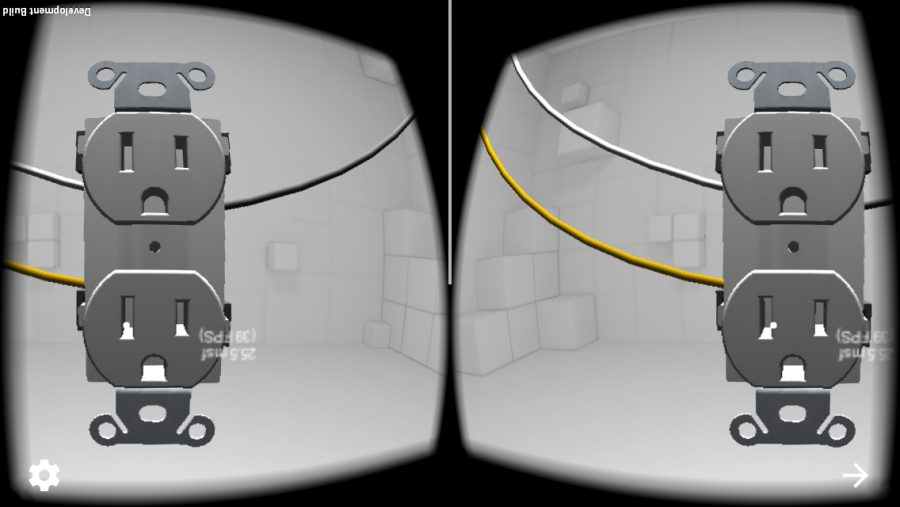VR and autism
October 10, 2017
Graduate student Greg Kuper’s received inspiration for his master’s thesis from a source close to home.
His daughter was diagnosed with autism at a young age. Autism is a neurodevelopmental disorder characterized by its spectrum, ranging from high functioning to low functioning. Kuper said his daughter is high functioning, but she still struggles with some things, which may affect her performance in the workforce.
“Once I’m gone and my wife is gone, she’s going to have to be self sufficient,” Kuper said. “So I started looking into how she would survive, and that’s how it all started – how she’s going to make it in the adult world.”
Kuper’s thesis studies the ability to raise the self-efficacy in a person with Autism Spectrum Disorder (ASD) using virtual reality (VR) as a training tool.
Kuper’s ongoing study examines people with ASD while they watch a video about how to do a task and then perform that task with a VR headset and gloves. Kuper said he measures the self-efficacy of the subject before and after the task.
Self-efficacy is a person’s motivation and self confidence to perform a task with the intended results. People with low self-efficacy are more susceptible to failing a task, while people with high self-efficacy are more likely to succeed with the intended results.
According to the Indiana Resource Center for Autism, repeated failure fosters feelings of futility and frustration in fragile learners who lack self-confidence and may lack competencies for task-related problem solving.
Kuper said he wants to curb these feelings of low self-confidence and frustration with the freedom of VR. Subjects in a simulation must wire a virtual electrical outlet by connecting color coordinated wires and screws. The participants get as many tries as needed until they can complete the task, which eases the burden of fear if they mess up. Kuper said he feels this is crucial to help them succeed.
“Because of the interaction that happens with virtual reality, it is a great way to help ingrain the training,” Kuper said.
The virtual reality simulation was designed in the video game engine Unity by Fred Leighton, a professor for the Media Arts and Game Development program at the University of Wisconsin-Whitewater. Leighton serves on Kuper’s three person committee for his thesis.
Kuper said he feels using VR as a training tool for people with ASD is a great training tool to get assimilated to a job or working environment. Kuper said that in his research, he’s found there has not been a lot of coverage in this area.
“To be quite honest, there hasn’t been enough research done, and that’s always kind of bothered me,” Kuper said.
The study is continuing and open for participants. The only requirement is that participants must be diagnosed with ASD, however it does not matter where those individuals fall on the spectrum. Those who take part will receive a free $10 Walmart gift card. Questions can be directed to Greg Kuper via email at [email protected].











